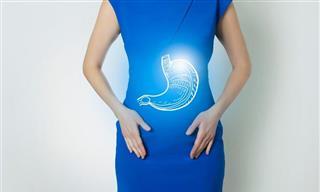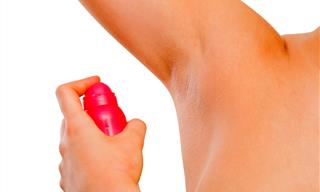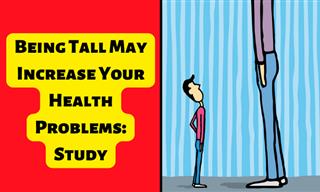Are you currently experiencing a decrease in your libido and struggling to find the energy to start your day energetically? Perhaps you also find it challenging to concentrate on your work or engage in meaningful interactions with your loved ones. If these symptoms sound familiar, you may be experiencing symptoms of low testosterone, commonly referred to as low T.
Can dietary choices influence testosterone levels?

Testosterone is one of the most important sex hormones in the human body. While males produce more testosterone than females, testosterone is still an important hormone for women as well. Testosterone stimulates muscle mass, bone mass, and body hair growth, as well as influencing reproduction. Generally, the body does a good job of regulating hormones and keeping testosterone levels where they should be.
Testosterone reduction can result from various factors, including daily life stress and dietary patterns. Certain foods have been identified as potentially detrimental to testosterone levels.
A 2020 study revealed that men who stuck to a "Western" diet characterized by red meat, fried foods, high-fat content, and processed snacks experienced significant adverse effects on their testosterone and sperm count over a nine-year period. In contrast, individuals following a more sensible diet consisting of fish, chicken, vegetables, fruit, and water showed sperm counts up to 42 million higher than those on the "Western" diet.
So, which foods, in particular can lower your testosterone? Here’s everything you need to know.
Also Read: 11 Warning Signs of Low Testosterone
1. Soy products

Soy foods, including tofu, edamame, and soy protein isolates, contain phytoestrogens, which bear a structural resemblance to estrogen and function similarly within the body.
In a study conducted in 2005 with 35 male participants, soy protein consumption for 57 days was associated with reduced testosterone levels. However, it is important to acknowledge the limitations of this study due to its relatively small sample size. Additionally, a separate study on rats demonstrated that phytoestrogen intake led to decreased testosterone levels.
A subsequent study in 2013 observed that men who consumed 20 grams of soy protein isolate daily for 14 days showed lower testosterone levels compared to those who consumed whey protein isolate or a placebo. A 2010 meta-analysis, however, found no negative effects on male hormones.
As the research findings remain inconclusive, it would be prudent for people with low testosterone levels to exercise caution and consider consuming soy products in moderation.
2. Vegetable oils

Many vegetable oils are rich in polyunsaturated fatty acids, which, while potentially beneficial as a source of healthy fats, have been linked to decreased testosterone levels when consumed in excessive quantities.
A 2019 study looked at people with hypogonadism, a disorder marked by reduced testicular function. It concluded that diets high in polyunsaturated fatty acids reduced serum testosterone production.
Similarly, a 2000 study examined 69 men and concluded that regular consumption of polyunsaturated fats was associated with significantly lower testosterone levels.
3. Sugary foods

Excessive sugar consumption may have a negative impact on your testosterone levels.
A 2018 study examined a group of men between the ages of 20 and 39. It was discovered that those who consumed a lot of sugary drinks were more likely to have low testosterone levels. It is worth noting, however, that a significant proportion of the participants in this study also had a higher body mass, which could potentially influence testosterone levels.
Also, a comprehensive analysis of various studies investigated the relationship between diet and individuals diagnosed with polycystic ovary syndrome (PCOS). While further research is required, multiple studies have identified an association between diets rich in sugar and increased testosterone levels among those with PCOS.
Another recent review of studies found a connection between diets high in calories and sugar and reduced testosterone levels in males.
4. Alcohol

The consumption of alcoholic beverages such as beer, wine, or other forms of alcohol may negatively affect testosterone levels. Males are particularly susceptible to these effects. Experts say that those who are concerned about their testosterone levels should either abstain from or limit their alcohol intake.
Although some studies suggest that small quantities of alcohol can lead to increased testosterone levels in men, this is generally not the case. A study published in the Current Drug Abuse Review indicates that heavy or prolonged alcohol consumption actually reduces testosterone levels among males. Furthermore, the paper highlights that alcohol consumption is associated with increased testosterone levels in women.
This decrease is likely attributed to alcohol's inhibitory effect on enzymes responsible for testosterone production, as observed in a study from the 1980s.
Also Read: 9 Natural and Proven Ways to Boost Testosterone Levels
5. Baked goods

Research published in the journal Nutrients showed a correlation between a diet rich in bread, pastries, and other desserts and reduced total testosterone levels in men. The study also identified other contributing factors, such as high dairy intake, frequent dining out, and insufficient consumption of dark green vegetables. The results also showed that these food habits were linked to lower muscle mass and higher body fat among the participants.
6. Trans fatty acids

Trans fats, primarily present in processed foods, are widely recognized as harmful to one’s health. Artificial trans fats, also known as industrial trans fats or partially hydrogenated fats, are particularly dangerous.
A study published in the Asian Journal of Andrology analyzed the dietary habits of young, healthy males about their hormone levels and testicular function. Their findings suggested that trans fat intake could potentially reduce testosterone levels in the body. The study further revealed that excessive consumption of omega-6 fatty acids appeared to have a negative impact on testicular size and function.
In a separate 2017 study, researchers looked at the effects of fatty acid consumption on 209 healthy men. The results showed a correlation between a high intake of trans fatty acids and decreased testosterone levels.
7. Licorice root

Licorice root is commonly consumed as a tea but has also been associated with potential testosterone-lowering effects. A study published in Integrative Medicine Research observed a decrease in testosterone levels among healthy women during their menstrual cycles when exposed to licorice root. Furthermore, a small-scale study revealed a significant decline of 26 percent in testosterone levels among men who consumed 7 grams of licorice root daily for one week.
Additionally, animal studies have also demonstrated that licorice supplementation can lead to reduced testosterone levels.
8. Some nuts

Nuts are well known for their high concentrations of healthy fats and minerals. However, various studies have indicated that certain nuts rich in polyunsaturated fatty acids, such as walnuts, pistachios, peanuts, pecans, and almonds, can induce oxidative stress in storage tissues. This can lead to a decrease in testosterone levels. Walnuts and almonds also increase the production of sex hormone-binding globulin (SHBG). SHBG is in charge of delivering testosterone and other hormones throughout the body. A higher concentration of SHBG in the body leads in a lower concentration of free testosterone.
For those who enjoy eating nuts, experts suggest opting for varieties that are both nutrient-dense and characterized by high levels of monounsaturated fatty acids (MUFAs), known to benefit cholesterol and heart health. Examples of such nuts include Brazil nuts, chestnuts, and macadamia nuts.
9. Flaxseed

Flaxseeds offer numerous health benefits, including enhancing cholesterol levels, promoting digestive health, and reducing blood pressure. However, excessive flaxseed consumption may have a negative impact on testosterone levels. This is due to the high lignan content in flaxseed, which might lower testosterone levels.
Lignans are plant-based compounds that bind to testosterone and may remove it from the body. They can lower total and free T levels and prevent testosterone from being converted into the beneficial androgen dihydrotestosterone. In one small study, researchers observed significant decreases in total and free testosterone in 25 men with prostate cancer who followed a low-fat diet supplemented with flaxseed.
Also Read: Got a Low Sperm Count? Here's How to Improve It!
10. Spearmint and peppermint

Peppermint and spearmint have long been recognized as herbal remedies for a variety of ailments, including stress, digestion, and sinus discomfort. Moreover, they also help freshen your breath. Unfortunately, there is evidence suggesting that mint may negatively effect male hormonal balance.
The results of a 2010 study with 42 female volunteers showed that testosterone levels significantly decreased after drinking spearmint herbal tea twice daily for 30 days.
In a separate study, researchers administered spearmint oil daily to rats with PCOS for 20 days, resulting in a reduction in testosterone levels. Similar results were seen in another study, which found that mice with PCOS who consumed spearmint had reduced testosterone levels.
To conclusively prove any potentially harmful association between mint and low testosterone levels, additional research is required, particularly including male human participants.
Note: Before making a major change to your diet, consult your doctor or healthcare professional, especially if you have an underlying health condition.
 Go to BabaMail
Go to BabaMail



































